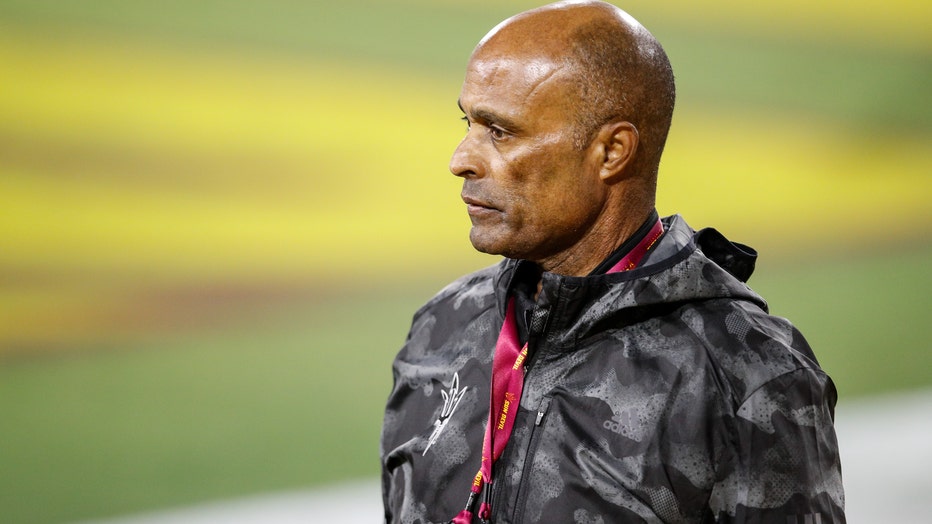Ray Anderson resigns as ASU's athletic director
TEMPE, Ariz. - Ray Anderson, the athletic director for Arizona State University, is stepping down from his position, the university confirmed on Nov. 13.
"It has been a privilege to serve as ASU's athletic director for nearly a decade," Anderson said in a statement. "We have entered an unprecedented era where the number and magnitude of changes in the college sports landscape are astounding. As I approach my seventh decade of life, these are not matters that my leadership would be able to corral during my tenure. Continuity of leadership will be needed, and I am choosing to step aside to let the university find that leader."
ASU says Anderson will remain at the university as a professor or practice and senior advisor at the Sandra Day O'Connor College of Law. He has been ASU's athletic director since 2014.

TEMPE, AZ - DECEMBER 05: Arizona State Sun Devils athletic director Ray Anderson during the UCLA Bruins vs Arizona State Sun Devils football game on Saturday December 5, 2020 at Sun Devil Stadium in Tempe, AZ. (Photo by Jevone Moore/Icon Sportswire via Getty Images)
Jim Rund, ASU senior vice president for educational outreach and student services, will serve as interim athletic director. Rund was the interim athletic director when Steve Patterson left for the University of Texas in 2013.
"The next athletic director will help navigate ASU's upcoming move into the Big 12 conference and other landscape-shifting issues including NIL, the transfer portal and recent Title IX challenges," ASU said in a statement.
A former NFL executive and agent, Anderson was hired in 2014 to reshape Arizona State athletics. He was instrumental in the school’s decision to leave the Pac-12 for the Big 12 next year and helped land one of the largest naming rights deals in college sports history when Sun Devil Stadium became Mountain America Stadium.
Anderson also took criticism for the hiring of former NFL coach and ESPN analyst Herm Edwards, who was fired three games into his fifth season in 2022. Anderson also was at the helm when the NCAA began investigating the football program for illegal recruiting practices during the COVID-19 pandemic.
The Associated Press (AP) contributed to this report.

